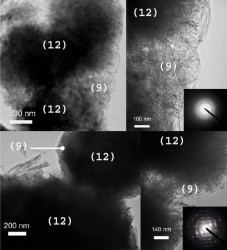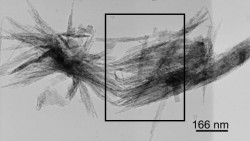Abstract
The present invention concerns the process for producing liquid polyols of renewable origin from organic materials such as agro-forestry and agro-food biomass and respective industrial residues, constituting a profitable and bio-friendly alternative to commercial polyols obtained from petrochemical sources. The said process involves two steps in a single reactor: i) the activation of the substrate with an alkaline alcoholic solution (pre-functionalization); ii) the oxypropylation and liquefaction of the activated substrate in heterogeneous conditions. The latter step might also involve the controlled addition of a monomer polyol, also of renewable origin, so as to adjust the properties of the final product, taking the desired applications into account. The present process does not require any specific operations to isolate the end product. The polyols thus obtained can be used in the formulation and preparation of polyurethanes and polyesters being applicable in food, pharmaceutical, furniture, civil engineering, automotive and polymer industries.
Innovative aspects & main advantages
This invention describes a novel process for the production of liquid polyols from agro-forestry and agro-food biomass (in particular residues from the respective industrial activities) that involve two steps; the pre-impregnation of the biomass substrate with an alkaline alcoholic solution followed by oxypropylation resulting in the liquefaction of the starting solid substrate.
The main advantages of this process are the use of any kind of lignocellulosic biomass available (including low value residues), the absence of specific operations to isolate the final product; the control of the final properties of the polyols (depending on the desired application) by addition of monomeric polyols also of renewable origin and their renewable connotation.
Applications
These novel partially bio-based polyols constitute an eco-friendly alternative to the commercial polyols obtained entirely from petrochemical sources in the formulation and preparation of polyesters and polyurethanes (in particular polyurethane foams) applicable for example in furniture, civil engineering, automotive and polymer industries.













